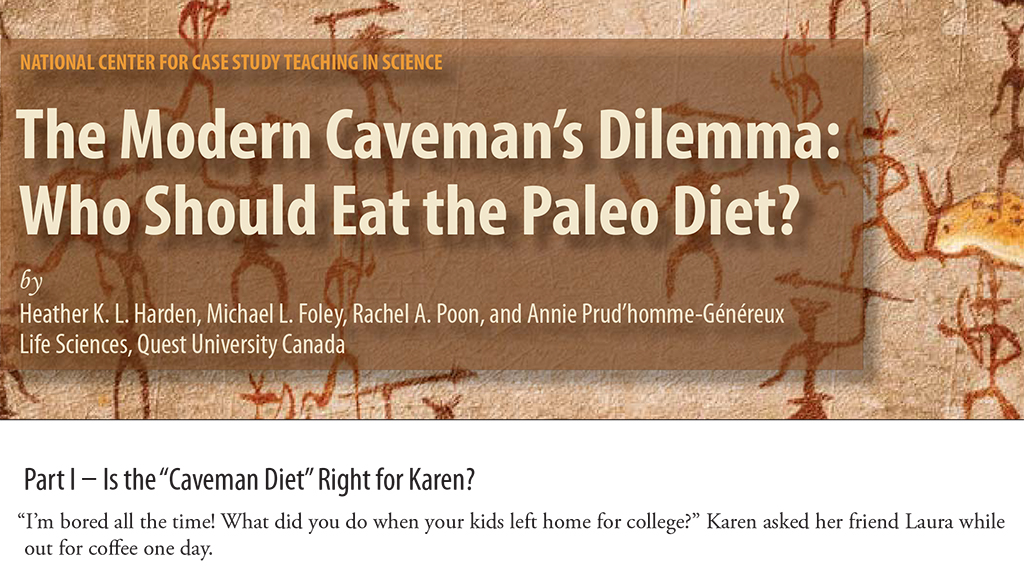Abstract
During the Paleolithic era, human life expectancy was only 33 years—roughly half of what it is today. We owe our more extended lives in part to better hygiene, medicines, and more plentiful foods. Yet some people aspire to return to that earlier era, at least at dinnertime. The Paleolithic diet (Paleo for short) is based on the belief that humans are optimally adapted to the foods available to our hunter-gatherer ancestors and eschews processed foods and the products of traditional agriculture (e.g., grains, milks, legumes). This case study uses role play to investigate the dietary, environmental, sports performance, and evolutionary basis and implications of this diet. Each team of students is provided with information on one of these aspects, which they evaluate and later disclose to other students in a jigsaw activity to decide whether the protagonist should go Paleo. The case takes roughly one hour to complete, requires no background, and is suitable for a nutrition, evolution, anthropology, or introductory biology course.



